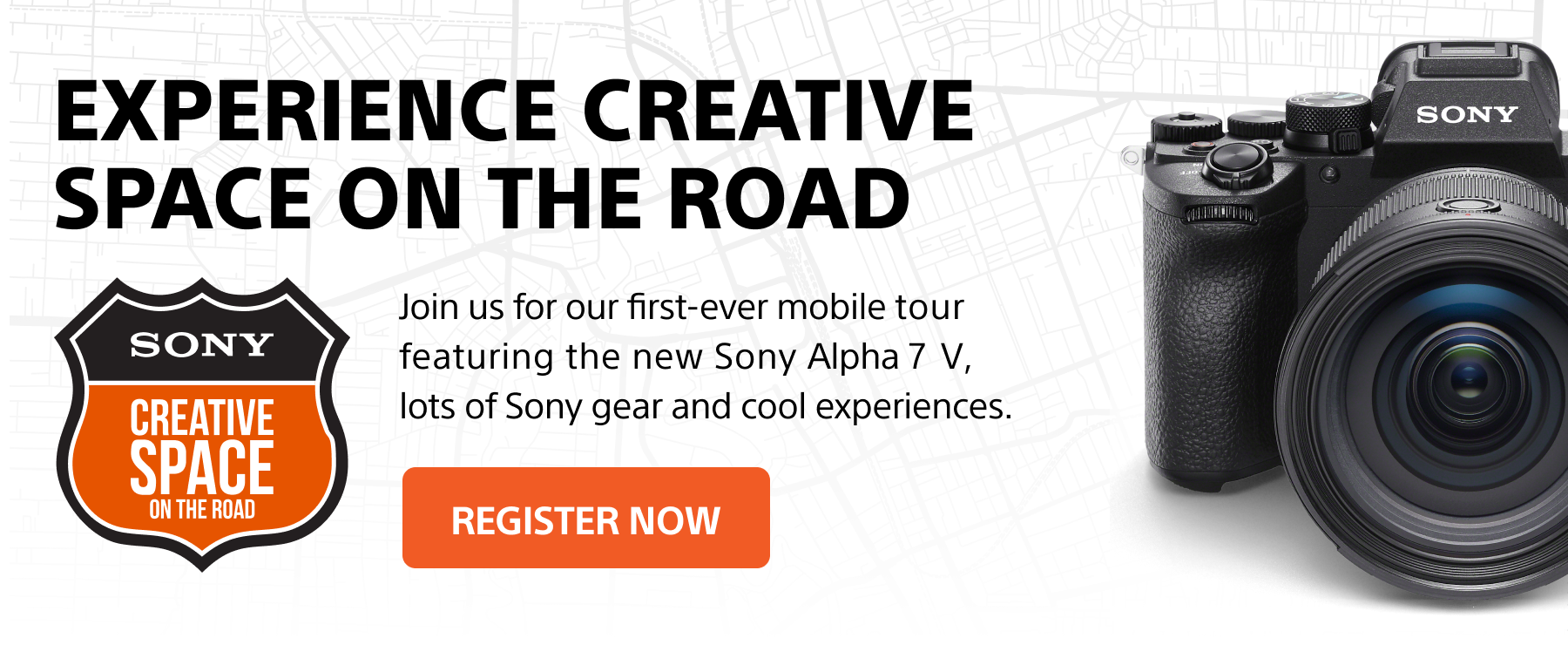Fall is my favorite season for photography, hands down. There’s something magical about the colors, the light, and the mood of this time of year – it’s a photographer’s playground! That's why I decided to take a road trip with my friend, Michaela Abla, the new Sony Alpha 7CR camera and Sony 16-35mm f/2.8 G Master II lens. I really wanted to use these two new amazing tools in the field to see how they would hold up in both a professional and personal setting.
My itnerary included some of my favorite East Coast states: West Virginia, Pennsylvania, Virginia and New York. I wanted to capture the diversity and beauty of the landscapes, from the mountains and forests to the cities and farms. Along the way, we also met some interestng people and had some memorable experiences, some of which had us running scared, but we’ll chat about that below!
Here are some highlights from my trip, along with some tips and tricks for autumn photography.
West Virginia: The Mountain State
My first stop was West Virginia, the mountain state. I was amazed by the variety of scenery, from the rugged peaks and valleys of the Appalachian Mountains to the rolling hills and rivers of the Allegheny Plateau. We spent a few days exploring the Harpers Ferry area along with the newly created New River Gorge National Park, where we found stunning views and endless trails to explore.
One of the best places to photograph I’ve found is from high atop the various mountain ridges in the New River Gorge. I was able to capture incredible aerial like views of the fall foliage from a multitude of vantage points and the fall colors really came to life as the sun set behind the mountain tops.
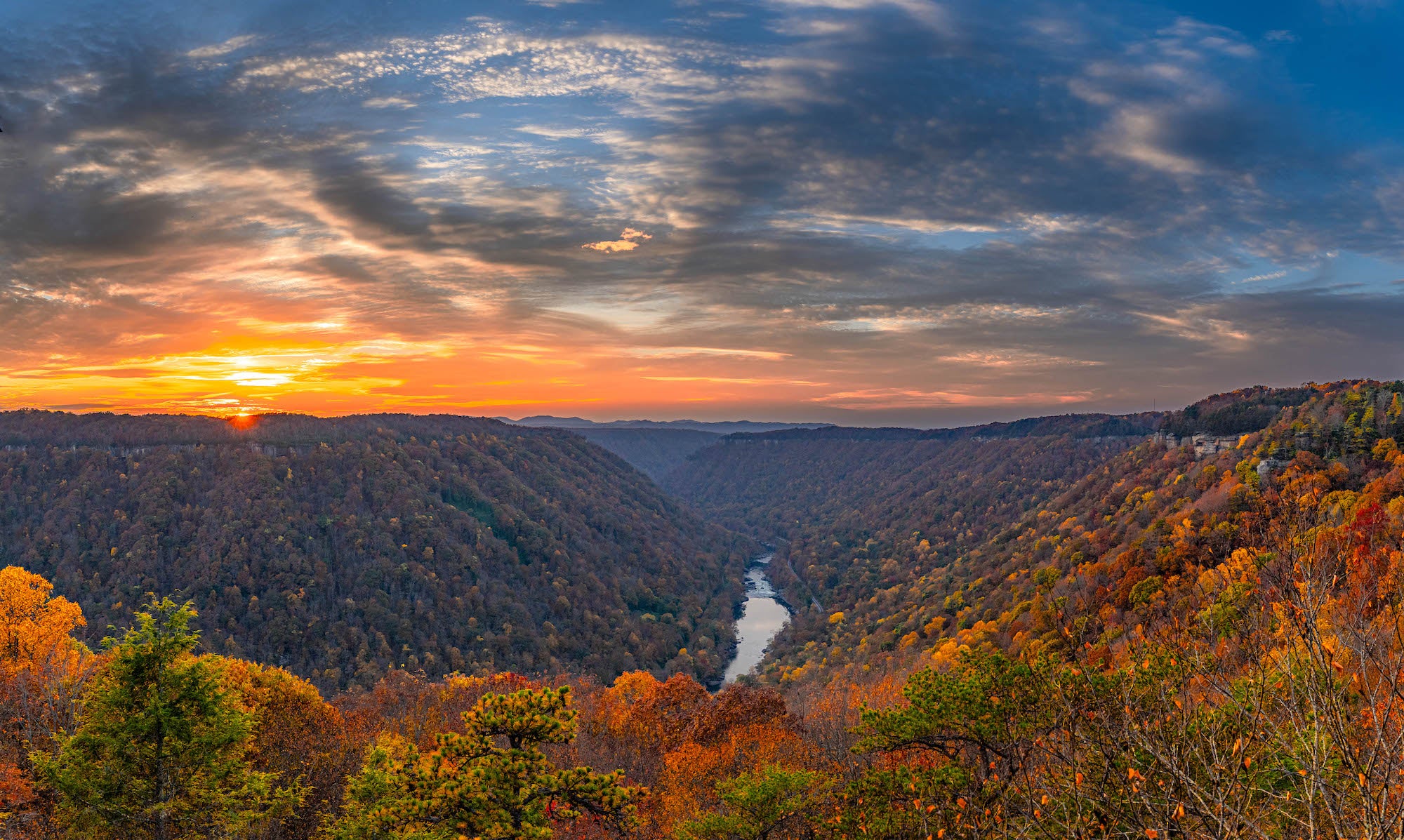
Photo by Andrew Geraci. Sony Alpha 7R V. Sony 16-35mm f/4 G PZ. 1/320-sec., f/4, ISO 200
Something thing I’ve learned while filming is to always change your perspective, and as grand as the views are from above they’re just as great below! Because of this, I trekked down to the bottom of the valley, where I found the perfect perspective showcasing the bridge that traverses over the New River Gorge. I used my Sony 16-35mm f/2.8 G Master II lens to capture the wide-angle perspective, and I was impressed by the sharpness and contrast of the images, especially when zoomed in at 100%. The lens also has a fast f/2.8 aperture, which is great for low-light situations and allows you to capture exceptional imagery in both day and nighttime situations.
The new moon had just risen, generously providing extra illumination to the valley floor below, and allowed me to create a beautiful image of both the stars and the fall foliage... at the same time! One thing I’ve learned over the years is just how important image sensors are, especially when filming at higher ISOs. I loved how this image turned out!
Pro Tip: Utilize your cameras bracketing feature (usually 5 shots at +3/-3) if you’re shooting directly into the sun and want to create a more balanced image. You can use post-production editors like Lightroom or Capture One to stack the (5) images together to give you the most dynamic range possible, making your images pop without losing information in the highlights or shadows.
Pennsylvania: The Keystone State
Next, we headed to Pennsylvania, the keystone state. This state has a rich history and culture, as well as some beautiful natural attractions. We visited the Gettysburg National Military Park, a location I hold dear to my heart as a military Veteran and showcases a variety of beautiful landscapes. We also went to waterfall country, Rickets Glenn State Park, where we hiked nearly five miles of beautiful waterfall trails, some of the best on the East Coast!
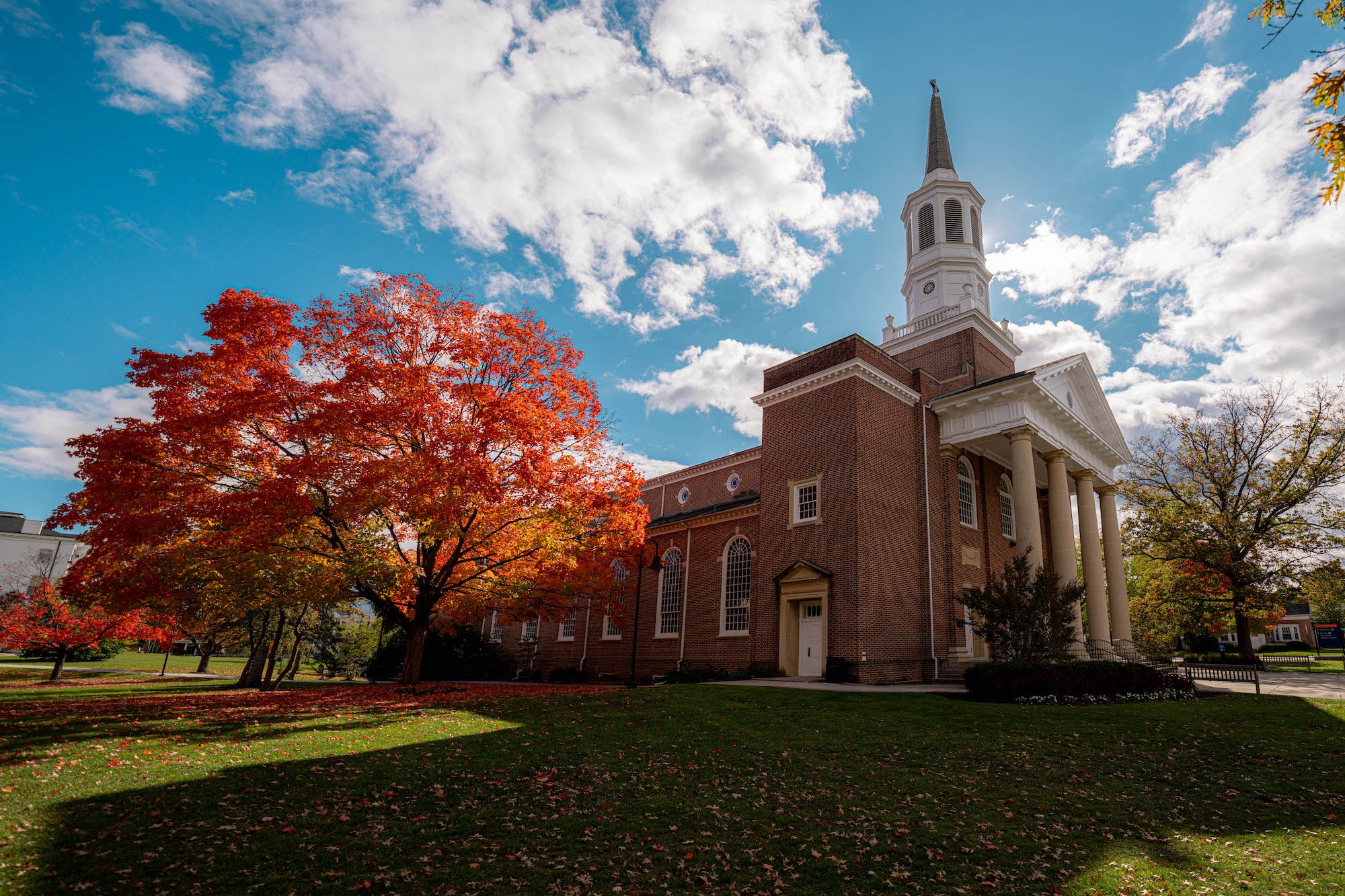
Photo by Andrew Geraci. Sony Alpha 7R V. Sony 12-24mm f/2.8 G Master. 1/3200-sec., f/2.8, ISO 100
One of the challenges of photographing in Pennsylvania in fall was the changing weather. It could be sunny and warm one moment, and rainy and cold the next. We had to be prepared for any situation, which meant adjusting my camera settings and camera load-out accordingly. I didn’t want bring 20lbs+ worth of photo gear on our 5 mile hike, so I opted to bring my Sony Alpha 7CR, Sony 16-35mm f/2.8 G Master II, a set of ND filters, tripod and a 360 camera.
A key benefit of utilizing the Alpha 7CR is its compact and lightweight body, which makes it easy to carry around and travel with, especially on long hikes! It also has a long battery life, which is essential for any outdoor/road trip experience because you don’t want to be weighed down with a ton of extra weight. I was able to shoot for hours without worrying about running out of power.
When we got to Rickets Glenn State Park I was blown away by the beauty of the hike and got lost in the endless colors of leaves and rushing water. I took the Alpha 7CR out with 16-35mm and began snapping away at each waterfall encounter. The further along the trail we went the more rich and diverse the compositions became, which becomes overwhelming and time consuming on such a long hike!
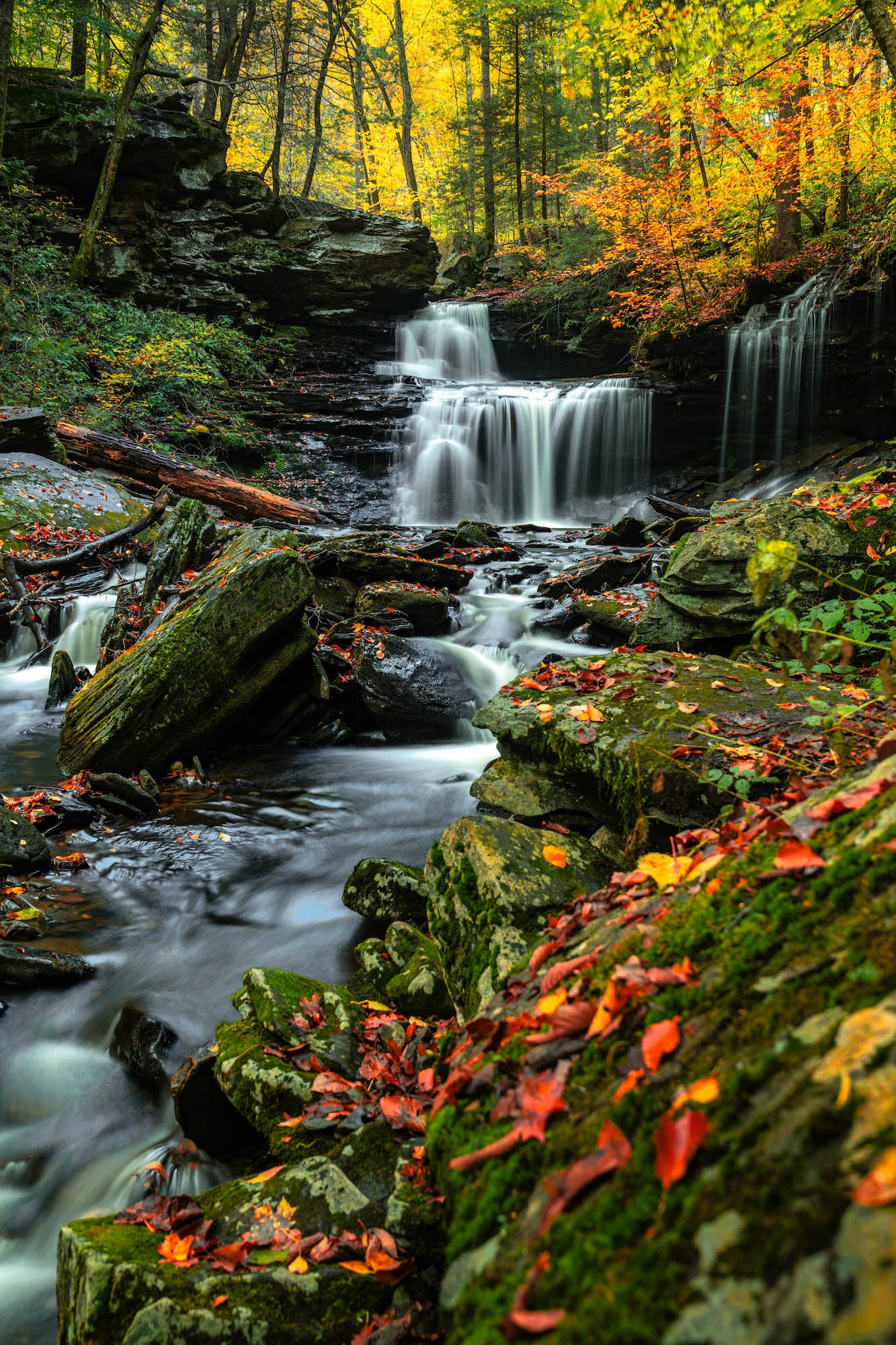
Photo by Andrew Geraci. Sony Alpha 7CR. Sony 16-35mm f/2.8 G Master II. 5-sec., f/5, ISO 50
One of the best tips I can give any photographer who’s filming running water is to use a variable ND or even a mega 10+ stop ND so that you can drag (or slow) your shutter speed down to 4-30 seconds to really make the water look like silk. This will really help elevate your photos and make them look extra beautiful and professional. When you couple that with the changing of the leaves, you’ll get a very vibrant and diverse set of imagery that will undoubtedly tantalize your audience.
Virginia
This state is known for its historical landmarks, and being close to our nation’s capital, Washington, DC. It is also home to some of the most scenic drives in the country, such as the Skyline Drive and the Blue Ridge Parkway. I’ve lived in this state for almost 20 years and every year I enjoy driving along these routes, stopping at various overlooks and attractions – it never gets old!
One of the things I love about Virginia is how long the fall foliage lasts. Depending on where you go in the state peak season can last many weeks. The colors are vibrant and varied, from the bright reds and yellows of the maples and birches to the dark greens and browns of the oaks and pines. I again used my 16-35mm G Master II lens to capture the sweeping views of the mountains and valleys, and then switched it up to get closer detailed shots with my favorite telephoto lens the Sony 70-200mm f/2.8 G Master II.
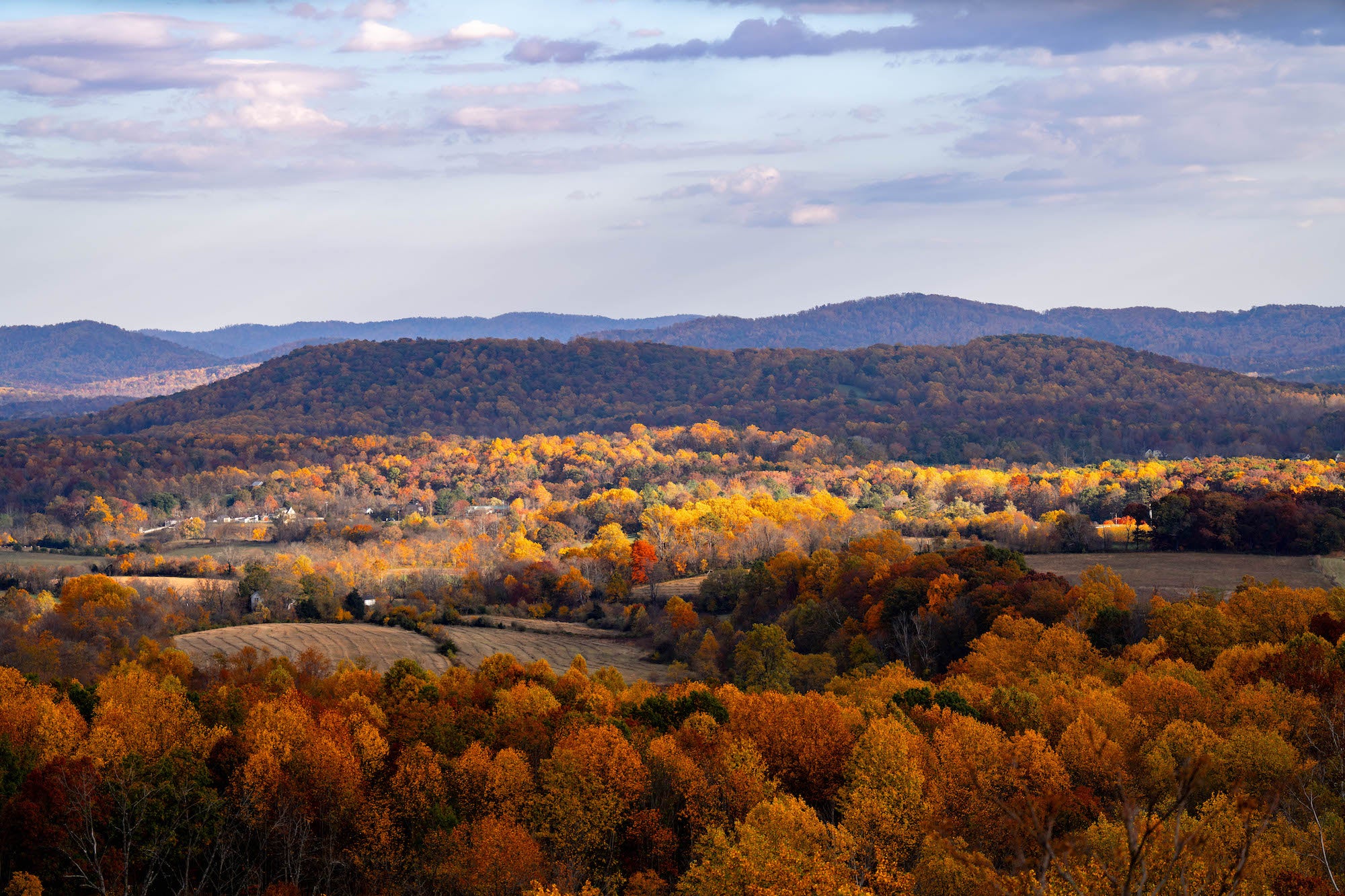
Photo by Andrew Geraci. Sony Alpha 7R V. Sony 70-200mm f/2.8 G Master II. 1/640-sec., f/2.8, ISO 50
When you’re out and about on a road trip you definitely want to make sure you bring a variety of lenses from ultra- wide to ultra light because you never know what situation you might get yourself in. Landscape shots can look great in both wide-angle and light compositions. To make the most of the fall colors, I followed some basic rules. I looked for contrast and harmony, such as the complementary colors of red and green, or the analogous colors of yellow and orange. I also looked for patterns and shapes, such as the curves and lines of the branches, or the circles and triangles of the leaves. I also looked for the best light, which is usually in the early morning or late afternoon, when the sun is low and soft.
A great perspective when filming trees is to get straight up underneath them during the early morning before the sun is too high on the horizon. You’ll be able to capture the beautiful color of the leaves as they sprout off in varying directions and give your viewers a unique perspective. If you can find sycamore trees, their white and grey bark will give you great trunk contrast and if you catch them in peak season, their leaves will be a brilliant orange/yellow for you.
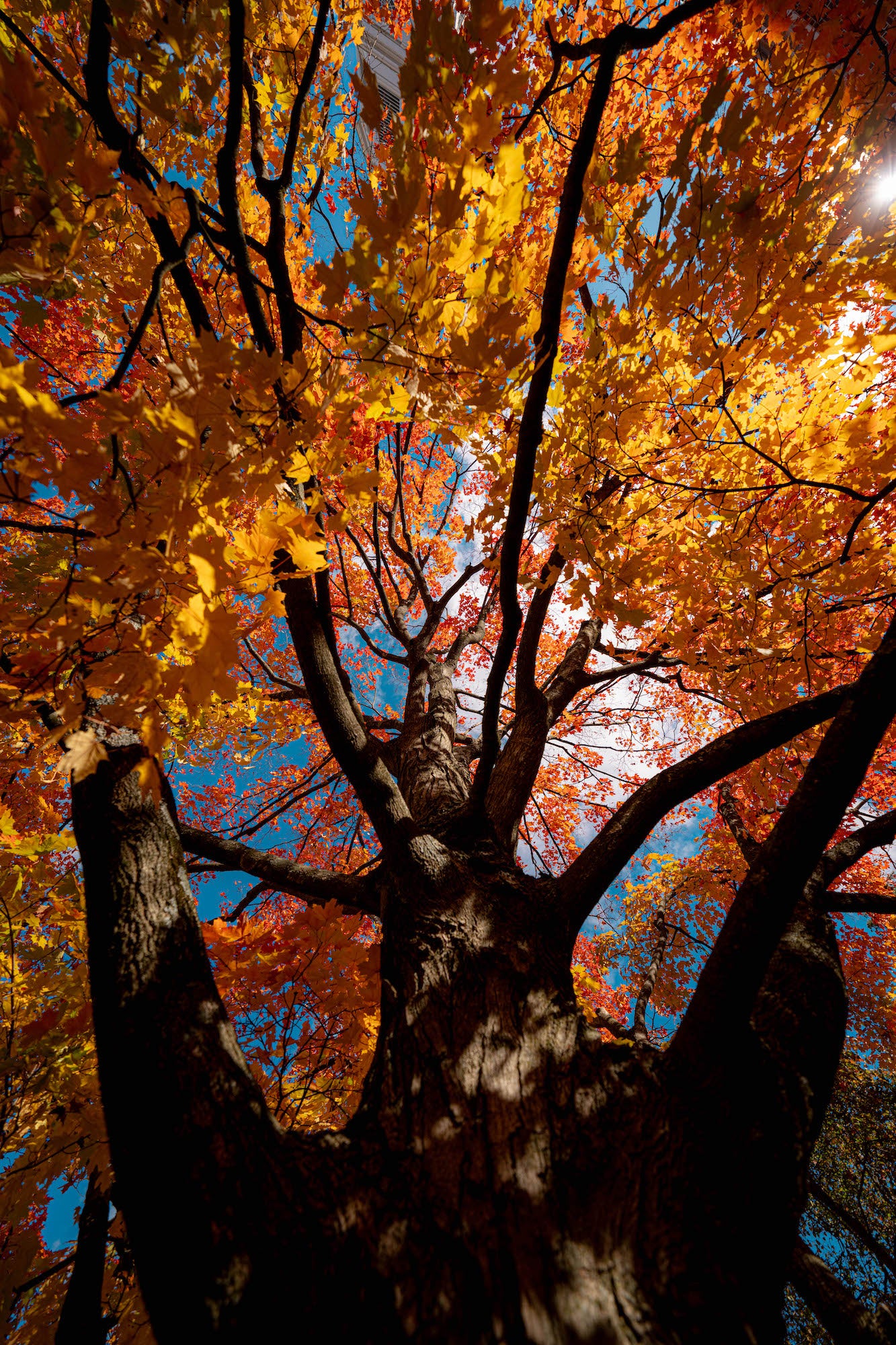
Photo by Andrew Geraci. Sony Alpha 7R V. Sony 12-24mm f/2.8 G Master. 1/2000-sec., f/2.8, ISO 100
Shooting Fall Portraits Along the Way
My fall road trip with the Sony Alpha 7CR and Sony 16-35mm f/2.8 G Master II lens was an unforgettable experience, but one I shared with my good friend and model, Michaela Alba. Most of the time we think of filming only the landscape and colors those landscapes provide to us, but they also make wonderful backdrops for portraits. One of the things I love about the Alpha 7CR is just how brilliant the sensor is (and it should be since it’s identical to the Alpha 7R V) and it really allows you to capture details that you might not have noticed while you were filming.
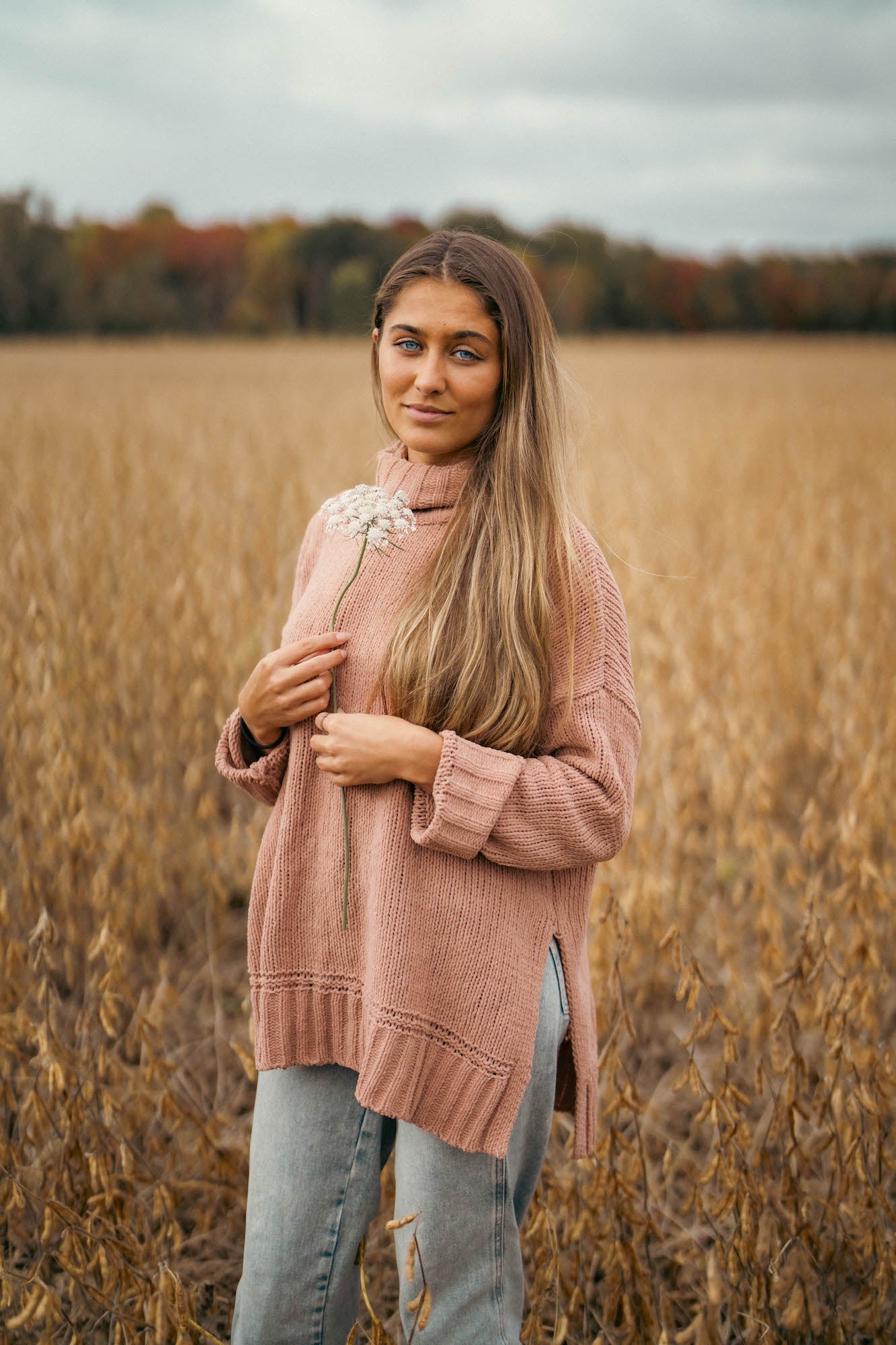
Photo by Andrew Geraci. Sony Alpha 7R V. Sony 50mm f/1.2 G Master. 1/8000-sec., f/1.3, ISO 200
When filming portraits, I tend to wake up super early, head out to a pre-scouted location and set my subject up in the light as it comes in real time. We were blessed with multiple days of clear skies so the early morning light really popped when it rose over the horizon. I placed Michaela in a variety of compositions, finding balance with the shapes of the trees, their color and their placement in the scene. For some of my setups I wanted Michaela to be integrated into the scene and in others stand out from it.
You can do simple things like changing the angle or perspective to give your subject more power or more presence in your shots, and for a variety of them that’s exactly what I did. I used the Sony Alpha 7CR with the Sony 50mm f/1.2 G Master and found myself loving the 1.2 aperture which gave me a super buttery background while retaining all of the fall colors in a beautiful bokeh bouquet. It might be my favorite portrait combo ever!
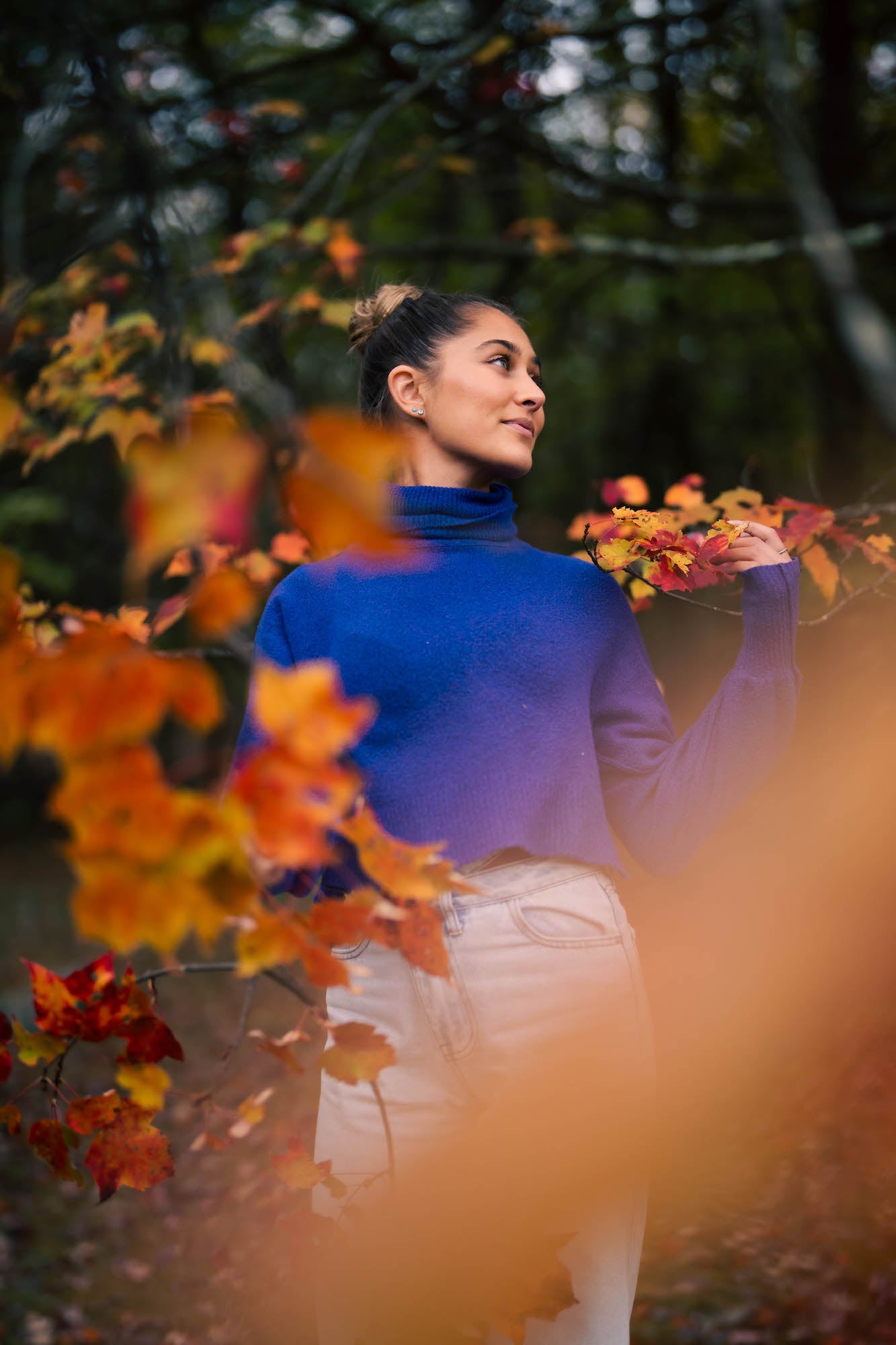
Photo by Andrew Geraci. Sony Alpha 7R V. Sony 50mm f/1.2 G Master. 1/1000-sec., f/1.2, ISO 200
A tip for anyone who wants to really sell the fall foliage look would be to use a very fast lens and then surround your subject with leaves/branches from a tree that’s peaking, and then adjust the composition to where it looks like your subject is embraced by said leaves/branches. Here’s a reel that will show you how to do that with ease.
Overall Conclusion To My Autumn Roadtrip
We had the opportunity to see and photograph some of the most amazing places on the East Coast in Autumn, and to witness the beauty and magic of the season. I was very happy with the performance and quality of the camera and the lens, which helped me to capture the images I envisioned with ease. I hope you enjoyed reading about my trip, and I hope you get inspired to take your own fall road trip soon!
Why The Sony Alpha 7CR Is A Great Travel Camera For Aspiring Photographers
If you love traveling and photography, you might be looking for a camera that can capture stunning images without weighing you down. The Sony Alpha 7CR is a compact full-frame mirrorless camera that offers high resolution, fast autofocus, and impressive battery life.
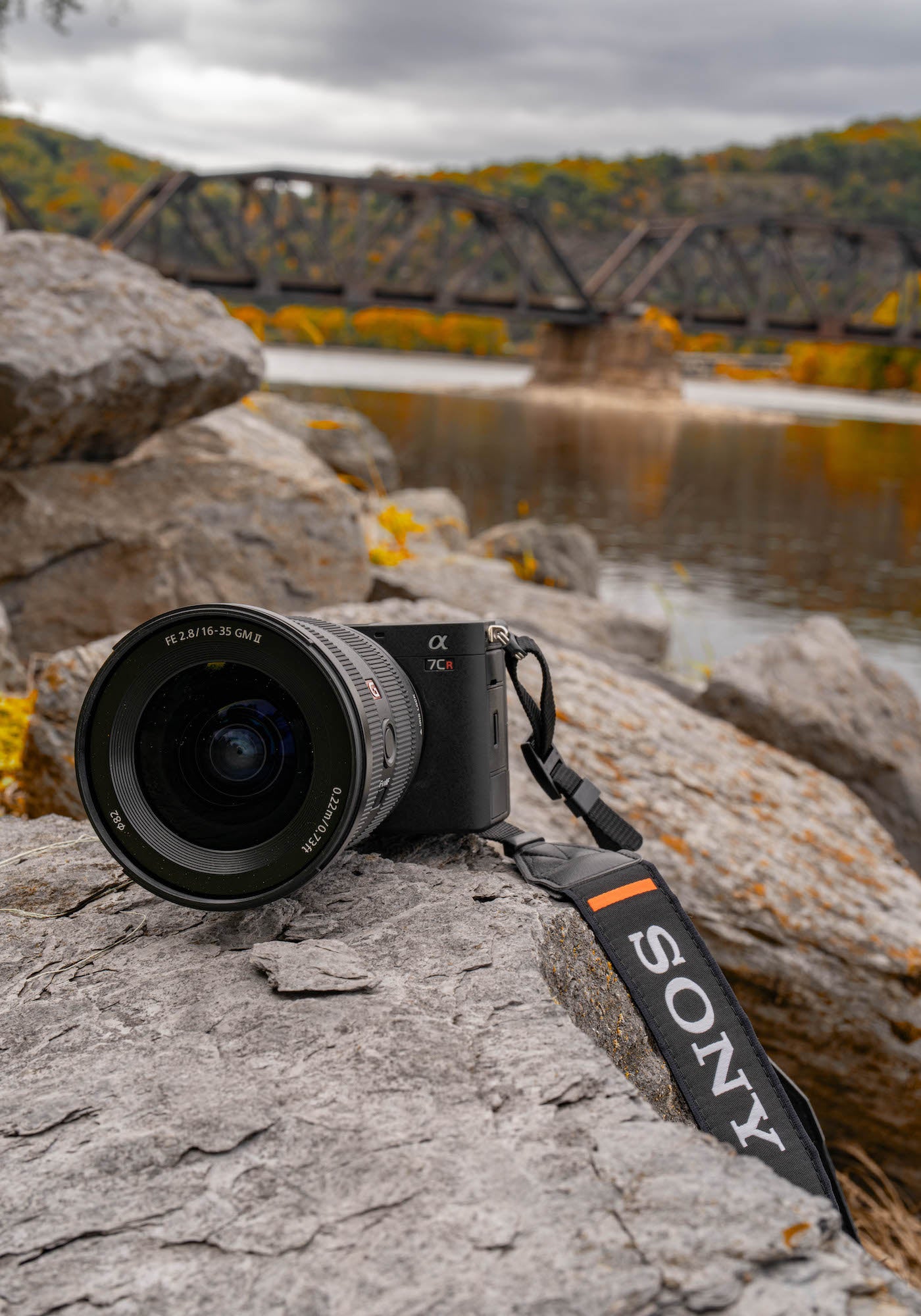
Photo by Andrew Geraci. Sony Alpha 7R V. Sony 50mm f/1.2 G Master. 1/50-sec., f/13, ISO 200
High Resolution For Detailed Landscapes & Portraits
The Sony Alpha 7CR features a 60MP full-frame sensor that delivers superb image quality and dynamic range. Whether you are shooting landscapes, cityscapes, or portraits, you can capture every detail and nuance with the Alpha 7CR. You can also use the PixelShift mode to create 240MP photos for extreme resolution and clarity. The Alpha 7CR also supports 4K 60p video recording for smooth and cinematic footage.
Fast Autofocus With AI Assistance
The Sony Alpha 7CR uses the same AI-powered autofocus system as the Alpha 7R V, which can track and lock on to any subject with ease. The Alpha 7CR can detect human and animal eyes, faces and bodies, and adjust the focus and exposure accordingly. You can also use the touch screen to select your focus point or change the focus area. The Alpha 7CR can shoot up to 8 frames per second with continuous autofocus (mechanical shutter) 7 frames per seconds (electronic) and auto exposure, so you won’t miss any action or expression.
Compact & Lightweight Body With A Fully Articulated Screen
The Sony Alpha 7CR is one of the smallest full-frame cameras with an integrated viewfinder. It weighs only 18.1 oz (515 g) with the battery and memory card, making it easy to carry around and fit in your bag. The Alpha 7CR also has a 3-inch fully articulated touch screen that can flip out and rotate 180 degrees, allowing you to shoot from any angle and position. You can also use the screen to control the camera settings and review your images.
Impressive Battery Life & Connectivity Options
The Sony Alpha 7CR uses the NP-FZ100 battery, which can provide up to 740 shots or 215 minutes of video recording per charge. This means you can shoot all day without worrying about running out of power. The Alpha 7CR also has a USB-C port that supports charging and data transfer, as well as a micro HDMI port, a microphone jack, and a headphone jack. The Alpha 7CR also has built-in Wi- Fi and Bluetooth for wireless connectivity and remote control.
Conclusion
The Sony Alpha 7CR is a versatile and powerful camera that can handle any photography scenario with ease. It offers high resolution, fast autofocus, and impressive battery life in a compact and lightweight body. It is also compatible with a wide range of lenses and accessories from Sony. If you’re looking for a camera that can capture your travel memories in stunning quality, the Sony Alpha 7CR is a great choice.






















